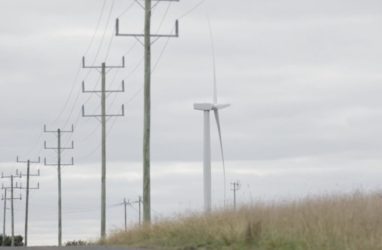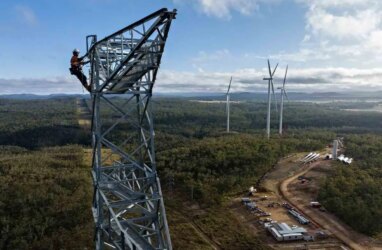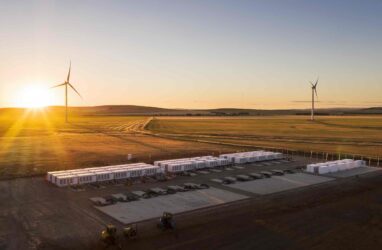Feed aggregator
NZ Market: NZU price rangebound with steady, ‘boring’ activity as stockpile expected to fall significantly longer term
Powercor wins bid to plug in bigger wind, solar and battery projects
The post Powercor wins bid to plug in bigger wind, solar and battery projects appeared first on RenewEconomy.
Labour appoints Rachel Kyte to climate envoy role axed by Sunak
Appointee was a climate chief at the World Bank and will lead UK’s return to high-level environmental diplomacy
A former climate chief of the World Bank has been appointed to lead the UK’s efforts to forge a global coalition on climate action, the Guardian can reveal.
Rachel Kyte, who previously served as special representative for the UN and a vice-president of the World Bank, will take up the role of climate envoy to lead the UK’s return to the front ranks of global climate diplomacy.
Continue reading...Surge in minke whales could be down to fewer basking sharks, Hebrides study says
When sighting rates for basking sharks are high they are low for minke whales, says monitoring programme
The highest ever recorded numbers of minke whales and the lowest number of basking sharks were observed in the Hebrides in 2023, according to a report.
The latest findings of the 20-year monitoring programme by the Hebridean Whale and Dolphin Trust suggest a possible association between these two highly mobile and long-lived species. When sighting rates for basking sharks are high, they are low for minke whales, and vice versa.
Continue reading...NSW grants licence to consortium picked to deliver first renewable energy zone
The post NSW grants licence to consortium picked to deliver first renewable energy zone appeared first on RenewEconomy.
US government tips billions into battery manufacturing projects
The post US government tips billions into battery manufacturing projects appeared first on RenewEconomy.
“Shocking, shameful, abhorrent:” Coal mine approvals slammed for reckless disregard of climate
The post “Shocking, shameful, abhorrent:” Coal mine approvals slammed for reckless disregard of climate appeared first on RenewEconomy.
Regulator to probe why South Australia price spiked despite much unused capacity
The post Regulator to probe why South Australia price spiked despite much unused capacity appeared first on RenewEconomy.
Global dairy giant Fonterra cuts operational emissions by 18%, but Scope 3 remains stubbornly high
COP29 host Azerbaijan’s climate action ‘critically insufficient’ -report
Climate change supercharged Europe floods - scientists
Europe’s deadly floods are glimpse of future climate
German nature-based trading platform, Thai consultancy launch regional coalition to fight climate change, biodiversity loss
Global heating ‘doubled’ chance of extreme rain in Europe in September
Researchers find climate crisis aggravated the four days of heavy rainfall and deadly floods
Planet-heating pollution doubled the chance of the extreme levels of rain that hammered central Europe in September, a study has found.
Researchers found global heating aggravated the four days of heavy rainfall that led to deadly floods in countries from Austria to Romania.
Continue reading...CWNYC24: BRIEFING – Forest carbon markets must prioritise biodiversity to be credible
Renewables rebound after slump but must speed up to hit Labor’s 2030 energy goals
Narrative that transition has stalled ‘demonstrably not true’, researcher says, but investment and construction must accelerate
- Follow our Australia news live blog for latest updates
- Get our breaking news email, free app or daily news podcast
Large-scale renewable energy investment and construction in Australia is rebounding this year after a slump, but will need to accelerate to reach the pace needed to meet the Albanese government’s goal for 2030.
The country could add more than 7 gigawatts of renewable energy capacity this year, up from 5.3 GW last year, according to data released by the Clean Energy Regulator.
Continue reading...Microwave tech cuts perovskite cell cook time from 30 mins to just 30s
The post Microwave tech cuts perovskite cell cook time from 30 mins to just 30s appeared first on RenewEconomy.









